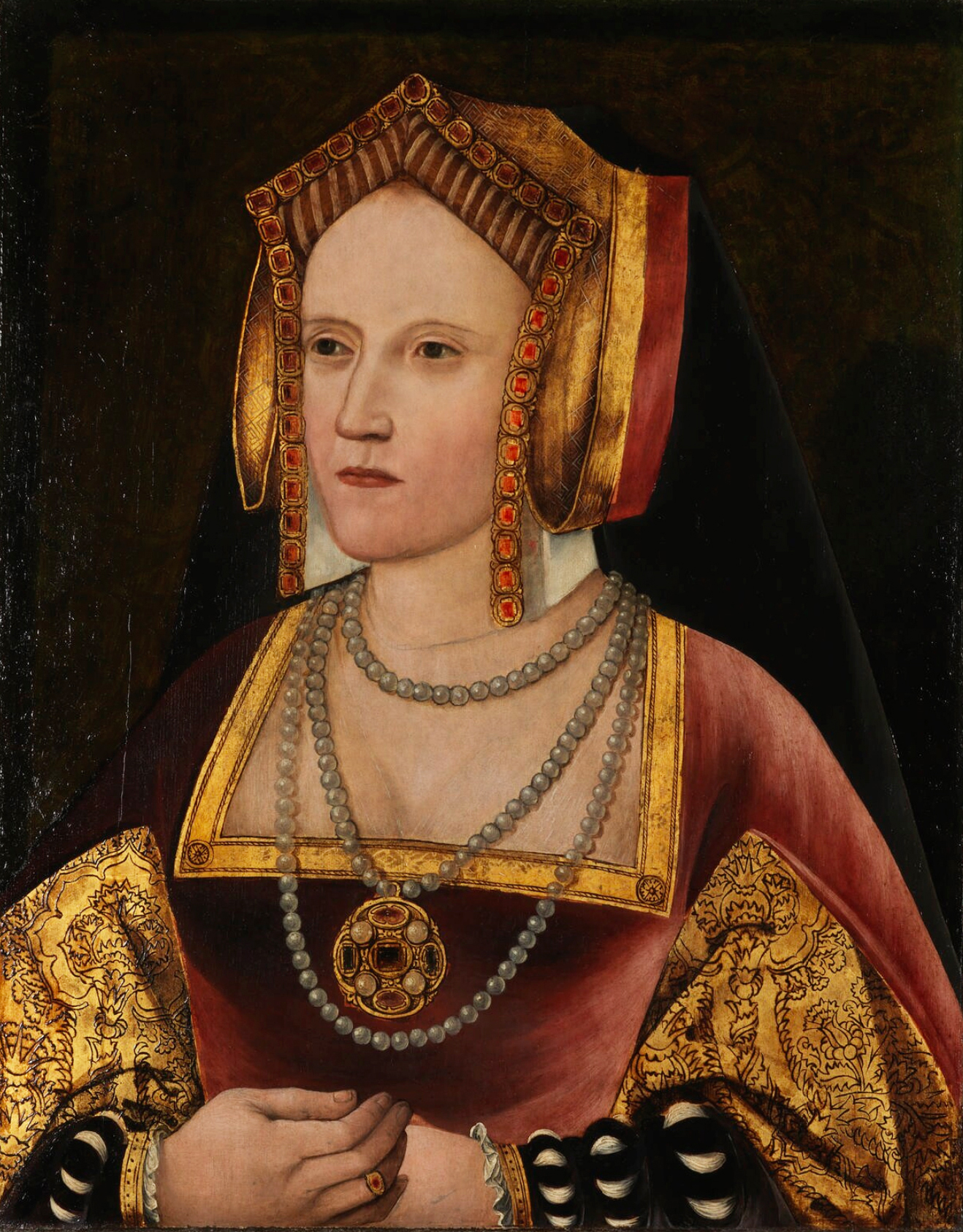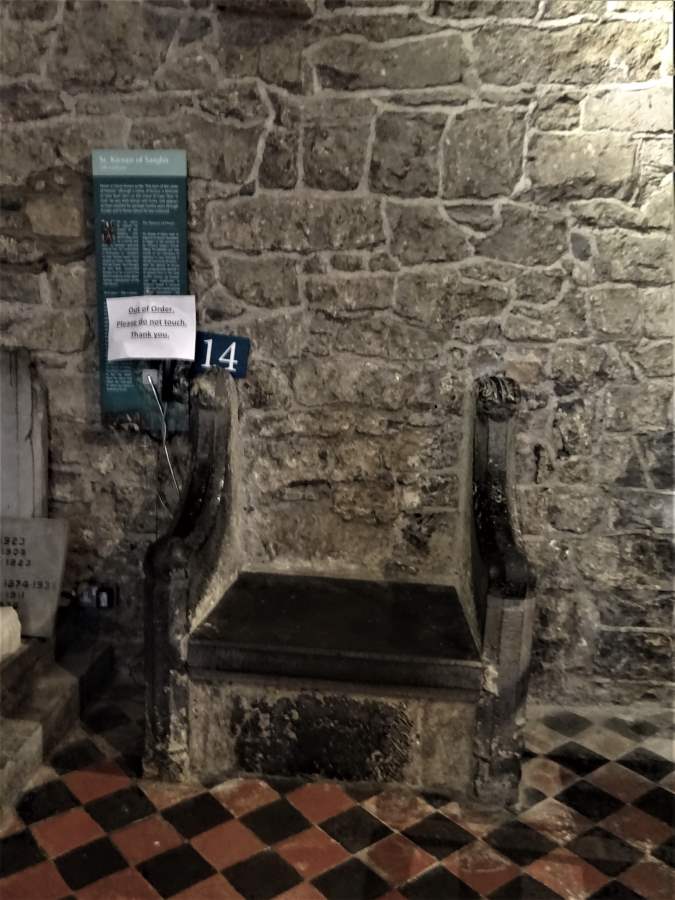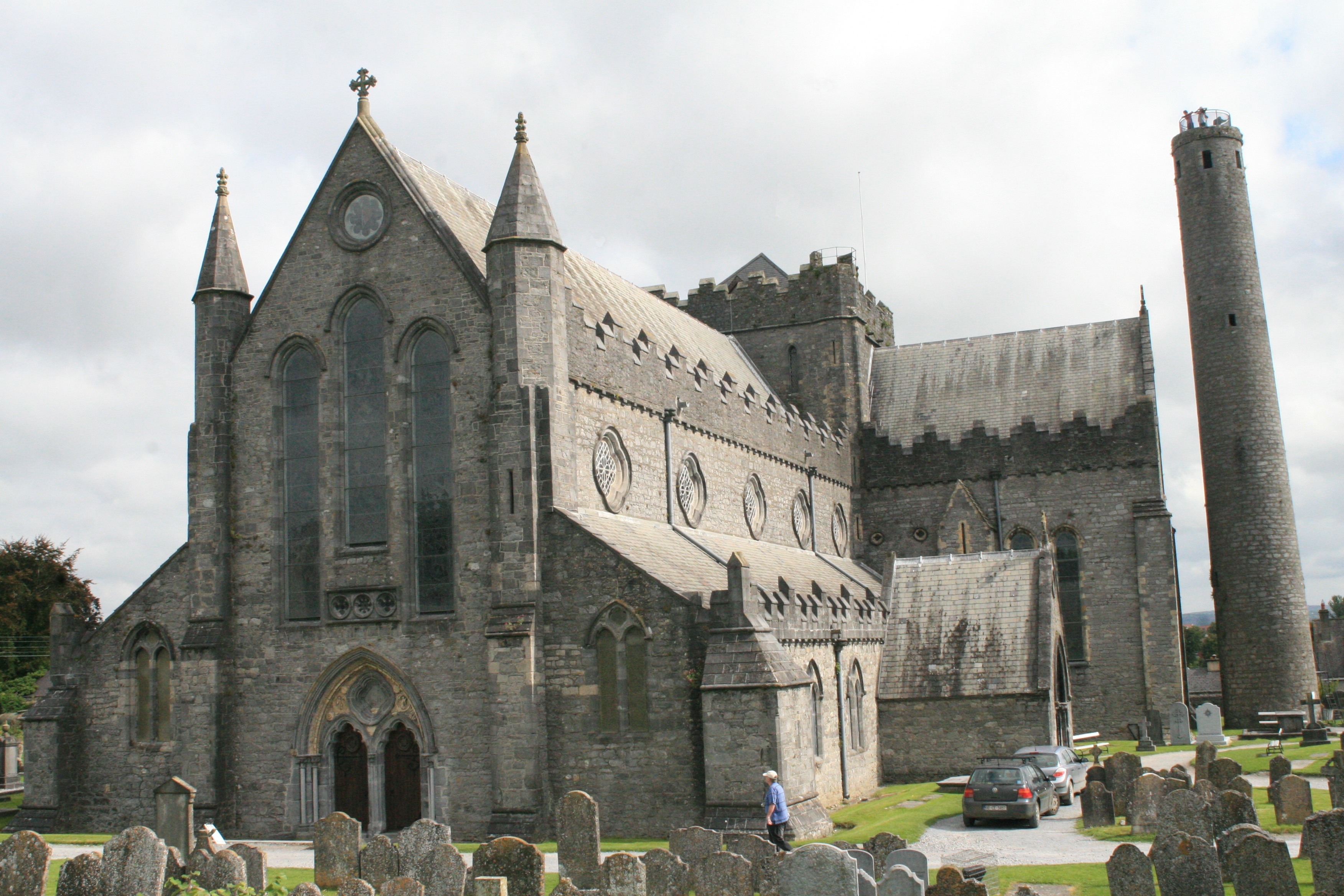|
Thomas Lancaster
Thomas Lancaster (died 1583) was an English Protestant clergyman, Church of Ireland Archbishop of Armagh from 1568. Life He was perhaps a native of Cumberland, and was probably educated at Oxford. On 11 July 1550 he was consecrated Bishop of Kildare by George Browne, Archbishop of Dublin. An evangelical Protestant, he attended the conference in June 1551 which Sir James Croft, Lord Deputy of Ireland, held at Dublin with George Dowdall, the Primate of Ireland and a Roman Catholic. In 1552, Lancaster was installed in the deanery of Ossory, which he held '' in commendam'' with his bishopric. On 2 February 1553, he assisted in the consecration of John Bale as Bishop of Ossory; and about the same time he published a statement of his doctrinal position; it is dedicated to Edward VI. Lancaster's style of argument resembles Bale's. Lancaster was married, and on that ground, he was deprived of both his preferments by Queen Mary in 1554, and spent the remainder of her reign in retir ... [...More Info...] [...Related Items...] OR: [Wikipedia] [Google] [Baidu] |
Archbishop Of Armagh
In Christian denominations, an archbishop is a bishop of higher rank or office. In most cases, such as the Catholic Church, there are many archbishops who either have jurisdiction over an ecclesiastical province in addition to their own archdiocese ( with some exceptions), or are otherwise granted a titular archbishopric. In others, such as the Lutheran Church of Sweden and the Church of England, the title is borne by the leader of the denomination. Etymology The word archbishop () comes via the Latin ''archiepiscopus.'' This in turn comes from the Greek , which has as components the etymons -, meaning 'chief', , 'over', and , 'seer'. Early history The earliest appearance of neither the title nor the role can be traced. The title of "metropolitan" was apparently well known by the 4th century, when there are references in the canons of the First Council of Nicæa of 325 and Council of Antioch of 341, though the term seems to be used generally for all higher ranks of bishop, ... [...More Info...] [...Related Items...] OR: [Wikipedia] [Google] [Baidu] |
Francis John Byrne
Francis John Byrne (1934 – 30 December 2017) was an Irish historian. Born in Shanghai where his father, a Dundalk man, captained a ship on the Yellow River, Byrne was evacuated with his mother to Australia on the outbreak of World War II. After the war, his mother returned to Ireland, where his father, who had survived internment in Japanese hands, returned to take up work as a harbour master. Byrne attended Blackrock College in County Dublin where he learned Latin and Greek, to add to the Chinese he had learned in his Shanghai childhood. He studied Early Irish History at University College Dublin where he excelled, graduating with first class honours. He studied Paleography and Medieval Latin in Germany, and then lectured on Celtic languages in Sweden, before returning to University College in 1964 to take up a professorship. Byrne's best known work is his ''Irish Kings and High-Kings'' (1973). He was joint editor of the Royal Irish Academy's ''New History of Ireland'' (9 v ... [...More Info...] [...Related Items...] OR: [Wikipedia] [Google] [Baidu] |
Mary I Of England
Mary I (18 February 1516 – 17 November 1558), also known as Mary Tudor, and as "Bloody Mary" by her Protestant opponents, was Queen of England and Ireland from July 1553 and Queen of Spain from January 1556 until her death in 1558. She is best known for her vigorous attempt to reverse the English Reformation, which had begun during the reign of her father, Henry VIII. Her attempt to restore to the Church the property confiscated in the previous two reigns was largely thwarted by Parliament, but during her five-year reign, Mary had over 280 religious dissenters burned at the stake in the Marian persecutions. Mary was the only child of Henry VIII by his first wife, Catherine of Aragon, to survive to adulthood. Her younger half-brother, Edward VI, succeeded their father in 1547 at the age of nine. When Edward became terminally ill in 1553, he attempted to remove Mary from the line of succession because he supposed, correctly, that she would reverse the Protestant refor ... [...More Info...] [...Related Items...] OR: [Wikipedia] [Google] [Baidu] |
Edward VI
Edward VI (12 October 1537 – 6 July 1553) was King of England and Ireland from 28 January 1547 until his death in 1553. He was crowned on 20 February 1547 at the age of nine. Edward was the son of Henry VIII and Jane Seymour and the first English monarch to be raised as a Protestant. During his reign, the realm was governed by a regency council because he never reached maturity. The council was first led by his uncle Edward Seymour, 1st Duke of Somerset (1547–1549), and then by John Dudley, 1st Earl of Warwick (1550–1553), who from 1551 was Duke of Northumberland. Edward's reign was marked by economic problems and social unrest that in 1549 erupted into riot and rebellion. An expensive war with Scotland, at first successful, ended with military withdrawal from Scotland and Boulogne-sur-Mer in exchange for peace. The transformation of the Church of England into a recognisably Protestant body also occurred under Edward, who took great interest in religious matters. His fat ... [...More Info...] [...Related Items...] OR: [Wikipedia] [Google] [Baidu] |
Bishop Of Ossory
The Bishop of Ossory () is an Episcopal polity, episcopal title which takes its name after the ancient of Kingdom of Ossory in the Provinces of Ireland, Province of Leinster, Republic of Ireland, Ireland. In the Roman Catholic Church it remains a separate title, but in the Church of Ireland it has been united with other bishoprics. History The diocese of Ossory was one of the twenty-four dioceses established at the Synod of Rathbreasail in 1111 and coincided with the ancient Kingdom of Ossory (Osraige); this is unusual, as Christian dioceses are almost always named for cities, not for regions. The episcopal see has always been in Kilkenny, the capital of Ossory at the time of the Synod of Rathbreasail. The erroneous belief that the cathedral was originally further north at Aghaboe is traced by John Bradley to a 16th-century misinterpretation of a 13th-century property transfer, combined with the fact that the abbey at the site which became St Canice's Cathedral, Kilkenny, was ... [...More Info...] [...Related Items...] OR: [Wikipedia] [Google] [Baidu] |
John Bale
John Bale (21 November 1495 – November 1563) was an English churchman, historian and controversialist, and Bishop of Ossory in Ireland. He wrote the oldest known historical verse drama in English (on the subject of King John), and developed and published a very extensive list of the works of British authors down to his own time, just as the monastic libraries were being dispersed. His unhappy disposition and habit of quarrelling earned him the nickname "bilious Bale". Outline of his life He was born at Covehithe, near Dunwich in Suffolk. At the age of twelve he joined the Carmelite friars at Norwich, removing later to the house of "Holme", (possibly the Carmelite Hulne Priory near Alnwick in Northumberland). Later he entered Jesus College, Cambridge, and took his degree of B.D. in 1529. He became the last Prior of the Ipswich Carmelite house, elected in 1533. He abandoned his monastic vocation, and got married, saying, "that I might never more serve so execrable a b ... [...More Info...] [...Related Items...] OR: [Wikipedia] [Google] [Baidu] |
In Commendam
In canon law, commendam (or ''in commendam'') was a form of transferring an ecclesiastical benefice ''in trust'' to the ''custody'' of a patron. The phrase ''in commendam'' was originally applied to the provisional occupation of an ecclesiastical benefice, which was temporarily without an actual occupant, in contrast to the conferral of a title, '' in titulum'', which was applied to the regular and unconditional occupation of a benefice.Ott, Michael. "In Commendam". ''The Catholic Encyclopedia'' Vol. 7. New York: Robert Appleton Company, 1910. 25 July 2015 The word ''commendam'' is the singular of the |
Dean Of Kilkenny
The Dean of Kilkenny or Dean of Ossory is based at The Cathedral Church of St Canice, Kilkenny in the united Diocese of Cashel and Ossory within the Church of Ireland. The current incumbent is David McDonnell List of deans of Kilkenny *1547–1552 James Bicton *1552–1555 Thomas Lancaster (also Bishop of Kildare, deprived 1555) *1559–1581 William Johnson *1582 David Cleere *1603–1610 Richard Deane (afterwards Bishop of Ossory *1610–1612 John Todd (also Bishop of Down and Connor 1607–1612) *1612 Barnabas Boulger *1617 Absolom Gethin *1621 Jenkin Mayes *1626–1661 Edward Warren *1661–1661 Charles Curren *1661–1666 Thomas Ledisham (afterwards Dean of Waterford) *1666–1667/8 Daniel Neylan *1667/8 Joseph Teate *1670/1-1673 Thomas Hill *1673/4-1674/5 Benjamin Parry (afterwards Dean of St Patrick's and Bishop of Ossory 1677) *1674/5–1697 John Pooley (afterwards Bishop of Cloyne 1697) *1702/3–1747 Robert Mossom *1747–1753 Robert Watts *1755–178 ... [...More Info...] [...Related Items...] OR: [Wikipedia] [Google] [Baidu] |
Roman Catholic
Roman or Romans most often refers to: *Rome, the capital city of Italy *Ancient Rome, Roman civilization from 8th century BC to 5th century AD *Roman people, the people of ancient Rome *'' Epistle to the Romans'', shortened to ''Romans'', a letter in the New Testament of the Christian Bible Roman or Romans may also refer to: Arts and entertainment Music * Romans (band), a Japanese pop group * ''Roman'' (album), by Sound Horizon, 2006 * ''Roman'' (EP), by Teen Top, 2011 *" Roman (My Dear Boy)", a 2004 single by Morning Musume Film and television * Film Roman, an American animation studio * ''Roman'' (film), a 2006 American suspense-horror film * ''Romans'' (2013 film), an Indian Malayalam comedy film * ''Romans'' (2017 film), a British drama film * ''The Romans'' (''Doctor Who''), a serial in British TV series People *Roman (given name), a given name, including a list of people and fictional characters *Roman (surname), including a list of people named Roman or Romans *Ῥωμ� ... [...More Info...] [...Related Items...] OR: [Wikipedia] [Google] [Baidu] |
Primate Of Ireland
The Primacy of Ireland was historically disputed between the Archbishop of Armagh and the Archbishop of Dublin until finally settled by Pope Innocent VI. ''Primate'' is a title of honour denoting ceremonial precedence in the Church, and in the Middle Ages there was an intense rivalry between the two archbishoprics as to seniority. Since 1353 the Archbishop of Armagh has been titled Primate of All Ireland and the Archbishop of Dublin Primate of Ireland, signifying that they are the senior churchmen on the island of Ireland, the Primate of All Ireland being the more senior. The titles are used by both the Catholic and Church of Ireland bishops. The distinction mirrors that in the Church of England between the Primate of All England, the Archbishop of Canterbury, and the Primate of England, the Archbishop of York. History The episcopal see of Dublin was created in the eleventh century, when Dublin was a Norse city state. Its first bishop, Dúnán (or Donatus), was described at ... [...More Info...] [...Related Items...] OR: [Wikipedia] [Google] [Baidu] |
George Dowdall
George Dowdall (1487 – 15 August 1558) was a sixteenth-century Irish cleric, who was twice Archbishop of Armagh. He was born in Drogheda, the son of Edward Dowdall. The Dowdall family came to Ireland from Dovedale in Derbyshire in the thirteenth century and settled in County Louth. Several members of the family became distinguished lawyers and judges. George had at least one brother, Christopher, who married Thomasine Cusack, a member of the prominent Cusack family of Cussington, County Meath. Christopher was the father of James Dowdall, who became Lord Chief Justice of Ireland. George entered the Order of the Brethren of the Cross (colloquially known as the Crutched Friars or Crouched Friars due to the crutch-like staffs which they carried) at an early age and became the last Prior of their house at Ardee. He was appointed Primate of All Ireland by Henry VIII in 1543 to succeed George Cromer. However, his appointment was not recognised by the Pope, who had earlier rep ... [...More Info...] [...Related Items...] OR: [Wikipedia] [Google] [Baidu] |
Lord Deputy Of Ireland
The Lord Deputy was the representative of the monarch and head of the Irish executive (government), executive under English rule, during the Lordship of Ireland and then the Kingdom of Ireland. He deputised prior to 1523 for the Viceroy of Ireland. The plural form is ''Lords Deputy''. List of Lords Deputy Lordship of Ireland *Sir Thomas de la Dale (1365-1366) *Sir Thomas Mortimer (1382–1383) *Thomas FitzGerald, 7th Earl of Kildare (1454–1459) *William Sherwood (bishop), William Sherwood (1462) *Thomas FitzGerald, 7th Earl of Desmond (1463–1467) *John Tiptoft, 1st Earl of Worcester (1467–1468) *Thomas FitzGerald, 7th Earl of Kildare (1468–1475) *William Sherwood (bishop), William Sherwood (1475–1477) *Gerald FitzGerald, 8th Earl of Kildare (1477) *Henry Grey, 4th (7th) Baron Grey of Codnor (1478–1479) *Gerald FitzGerald, 8th Earl of Kildare (1479–?1494) *Walter Fitzsimon, Archbishop of Dublin (Roman Catholic), Archbishop of Dublin (1492) *Robert Preston, 1st Visc ... [...More Info...] [...Related Items...] OR: [Wikipedia] [Google] [Baidu] |




